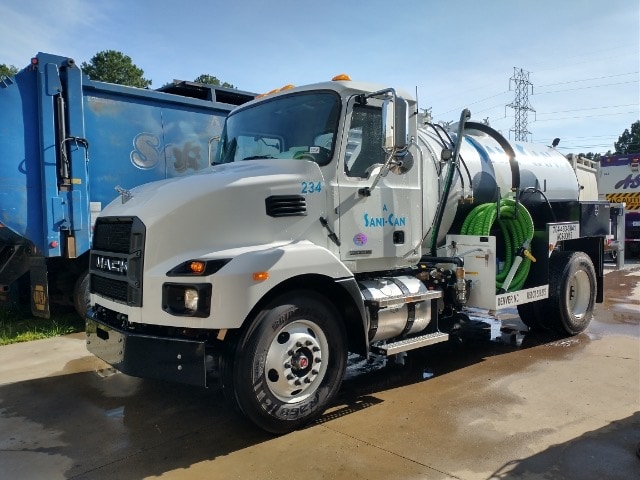Septic Tank Pumping
Septic Services
A Sani-Can provides provides septic tank services to residential and commercial customers. We offer routine septic tank pumping to ensure that our customers’ septic systems are functioning correctly and efficiently and prevent any overflow.
Highly trained technicians use the latest equipment and technology to pump and dispose of waste safely. We prioritize safety and environmental responsibility, using eco-friendly practices and complying with all environmental regulations.
We also offer emergency septic tank services, available 24/7, to address urgent septic system issues and minimize disruptions to our customers’ daily lives. Additionally, we provide transparent pricing and clear communication with our customers, ensuring that they are fully informed and satisfied with our services.
Overall, our septic tank service company is committed to providing reliable and professional septic system services to ensure our customers’ safety and comfort.
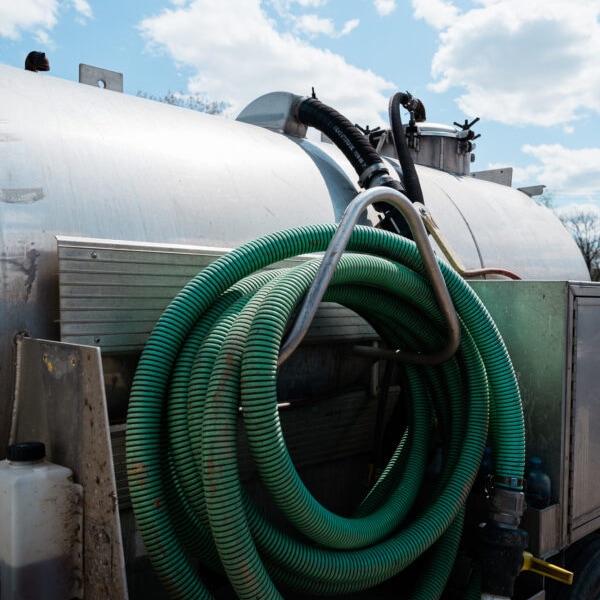
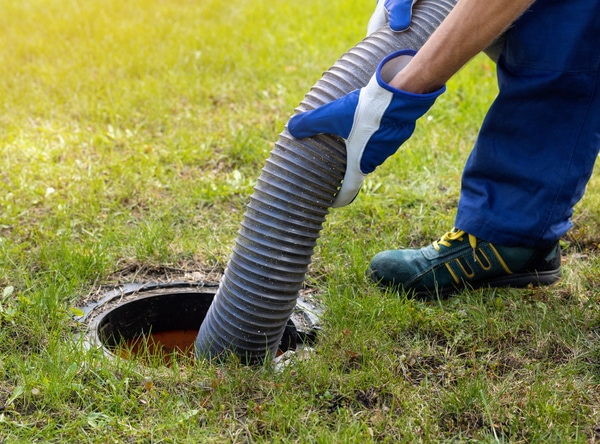
Proud to Serve Our Customers
A wide range of residential and commercial customers use septic service to maintain their septic systems. Residential customers who live in rural or remote areas without access to a municipal sewer system rely on septic systems to treat and dispose of their wastewater. Regular septic tank pumping and maintenance is necessary to prevent backups and ensure the proper functioning of the septic system. Commercial customers, such as restaurants, hotels, and healthcare facilities, also use septic service to maintain their septic systems, which may generate large volumes of wastewater. Additionally, industrial facilities and manufacturing plants often use septic service to manage their wastewater, which may contain hazardous materials and require specialized treatment and disposal. Overall, any property with a septic system can benefit from septic service to maintain the safety, health, and functionality of their septic system and avoid costly repairs or system failures.
Septic Pumping Services

Residential Septic Pumping
Residential sites that do not have access to municipal sewer systems typically require septic pumping to maintain their septic systems. Homes located in rural or remote areas often rely on septic systems to treat and dispose of their wastewater. Regular septic pumping is necessary to remove the accumulation of solids and sludge that can build up in the septic tank over time. Neglecting to pump the septic tank can cause the tank to become full, leading to backups and potentially costly repairs.
Additionally, larger residential sites that generate more wastewater may require more frequent septic pumping. For example, homes with large families, multiple bathrooms, or frequent visitors may need to pump their septic tanks more often than smaller households.
It’s important for homeowners to pay attention to the warning signs of a full septic tank, such as slow drains, gurgling noises, and unpleasant odors. In general, septic tanks should be pumped every 3-5 years, but this may vary depending on the size of the tank and the usage. Regular septic pumping can help prevent issues and prolong the life of the septic system.
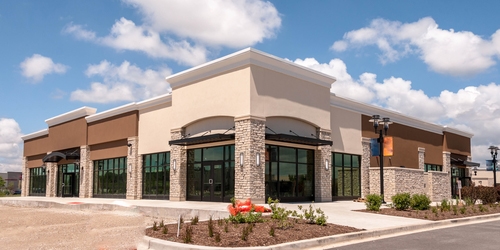
Commercial Septic
Commercial sites that generate a large volume of wastewater may require septic pumping to maintain their septic systems. For example, restaurants, hotels, and healthcare facilities may require septic pumping to remove food waste, laundry detergent, and other chemicals that can accumulate in the septic tank over time. These sites typically require more frequent pumping than residential sites due to their higher usage and larger tank sizes.
Industrial facilities and manufacturing plants may also require septic pumping to manage their wastewater. These sites may generate wastewater that contains hazardous materials or chemicals that require specialized treatment and disposal. As a result, they often require more frequent pumping and maintenance to ensure environmental compliance and prevent system failures.
It’s important for commercial property owners and managers to schedule regular septic pumping to prevent backups and system failures that can result in costly repairs and regulatory fines. In addition to routine maintenance, commercial sites should also implement best management practices to reduce wastewater volume and minimize the impact on the environment.
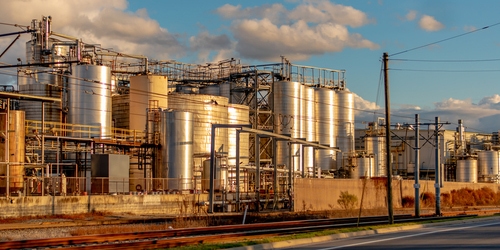
Industrial Sites
Various industrial facilities require septic pumping to manage their wastewater. Some examples of these facilities include manufacturing plants, refineries, and chemical processing plants. These facilities often generate large volumes of wastewater that contain hazardous chemicals, oils, or solvents. Proper septic maintenance is necessary to prevent environmental contamination, comply with regulations, and avoid costly fines. Facilities that store or handle petroleum products, such as gas stations and oil refineries, may also require septic pumping to manage their wastewater. These sites often have specialized septic systems, such as oil/water separators and grease interceptors, that require regular maintenance to prevent clogs and system failures. Additionally, construction sites may require septic pumping to manage wastewater generated during site preparation and construction activities. These sites may have temporary septic systems, such as portable toilets and holding tanks, that require frequent pumping and maintenance to prevent environmental contamination and comply with regulations. In general, industrial facilities that generate large volumes of wastewater or handle hazardous materials require specialized septic services to ensure the safe and compliant management of their wastewater.
Safe, Reliable, Professional, and Friendly
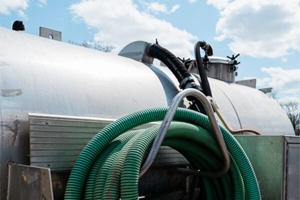
Safe and Reliable Trucks
Vacuum trucks, also known as pump trucks or suction trucks, are the most commonly used type of truck for septic pumping. These trucks are equipped with a large tank, a vacuum pump, and a suction hose that is inserted into the septic tank. The vacuum pump creates negative pressure, pulling the wastewater and solids into the tank. Vacuum trucks are also used for cleaning out other types of tanks, such as grease traps. Tanker trucks, also known as liquid waste haulers, are used for transporting large quantities of wastewater or sewage from septic systems. These trucks are equipped with a large tank and a pumping system that can load and unload the tank. Tanker trucks are used for larger jobs, such as pumping out community septic systems, treatment plants, and municipal sewage systems.
Overall, the type of truck used for septic pumping depends on the size of the job and the type of waste being transported. Both vacuum trucks and tanker trucks are designed to safely and efficiently transport wastewater and sewage, while minimizing the risk of spills or environmental damage.
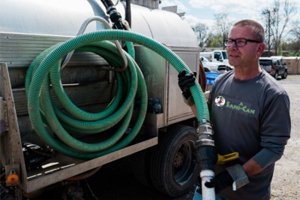
Professionally Trained Drivers
Our septic drivers are the best in the industry because of our commitment to providing high-quality and reliable septic services. We take pride in hiring experienced and knowledgeable drivers who are trained to handle all types of septic systems and customer needs. Our drivers are equipped with the latest technology and equipment to ensure that they can deliver the best possible service to our customers.
We understand that septic issues can be stressful and inconvenient for our customers, which is why we prioritize customer service and satisfaction in everything we do. Our drivers are friendly, professional, and always willing to go the extra mile to ensure that our customers are happy with our services.
In addition to our experienced drivers, we also invest in ongoing training and education to ensure that our team stays up-to-date with the latest industry developments and best practices. This allows us to provide innovative and effective solutions to our customers, while maintaining the highest standards of safety and compliance.
Overall, our septic drivers are the best in the business because of our commitment to excellence, customer satisfaction, and ongoing innovation. We take pride in delivering the best possible service to our customers, and we are dedicated to continuing to do so for years to come.

Friendly & Helpful Customer Service
Our septic customer service representatives are the best in the industry because we prioritize customer satisfaction and strive to make the septic service experience as easy and stress-free as possible. Our representatives are trained to provide knowledgeable and friendly service to customers, and we are always available to answer questions, provide guidance, and offer solutions to any septic-related issues.
We understand that septic problems can be disruptive and inconvenient for our customers, which is why we are committed to providing prompt and effective solutions. Our representatives work closely with our septic technicians to ensure that customer needs are met quickly and efficiently, and we are always willing to go the extra mile to ensure that our customers are happy with our services.
We Get The Job Done
A Sani-Can is committed to providing the highest quality septic services and exceptional customer service. Our experienced and knowledgeable team is dedicated to delivering prompt and reliable septic solutions to meet your needs. We use the latest technology and equipment to ensure that we provide effective and efficient services that comply with industry regulations and standards. Additionally, we prioritize customer satisfaction and work hard to make the septic service experience as easy and stress-free as possible. Whether you need septic pumping, repair, or installation services, you can trust our team to deliver the best possible service. So, choose our septic service company for all your septic needs and experience the difference that exceptional service can make.

